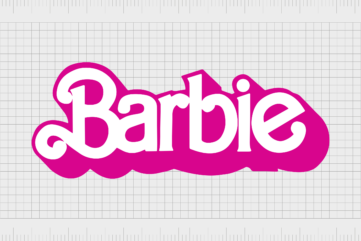How to write a persuasive essay: The ultimate guide

Virtually every student will need to learn how to write a persuasive essay at some point during their academic career. The ancient art of rhetoric, otherwise known as persuasive speaking or writing, dates all the way back to the Classical Period in ancient Greece.
Now, thousands of years later, we still use rhetoric and persuasive writing in countless interactions. Persuasive writing isn’t just important for your student life, it can also be a valuable tool in the business world.
Persuasive pieces help to generate sales and can improve your chances of getting a well-paying job.
Today, we’re going to provide a comprehensive guide to writing a persuasive essay correctly.
What is a persuasive essay?
Before we cover the basics of how to write a persuasive essay, let’s discuss what a persuasive paper actually is. Persuasive essays are articles or pieces designed to sway readers towards a particular viewpoint.
In an academic manuscript, “rhetoric” can help convince your audience to share your perspective on a specific topic. In personal writing, persuasive copy can also push people towards certain actions (like offering you a job interview).
There are various elements usually involved in a persuasive essay. Most start with a question which you (the writer) or your writing essay service spends the course of the content either arguing in favor of, or opposition to.
For instance, if your persuasive essay was about whether Macs were better than PCs, you’d focus on showing how one technology option was better than the other.
Persuasive essays make firm, clear statements backed up with a combination of anecdotal evidence, research, and data.
According to Aristotle, one of the first people to introduce the art of the rhetoric, a persuasive argument must include:
Ethos
The element of your argument used to establish credibility and knowledge. You demonstrate your background and demonstrate why you’re the right person to answer the specific question at the head of the essay.
Pathos
This part of a persuasive paper appeals to your audience’s emotions. Triggering certain emotions can help your audience to empathize with you as a reader. It’s also a good way to help readers step into your shoes and see things through your eyes.
Logos
The “logos” part of a persuasive essay appeals to an audience’s rationality and logic. Good persuasive writing outlines a series of logical reasons a reader should believe a writer’s arguments.

Tips for writing persuasive essays: Where to begin
Persuasive essay writing, like most forms of writing, is an artform you’ll perfect over time. As with many forms of writing, you’ll need to start with the correct preparation.
Usually, you’ll be able to pick a topic you’re passionate about for your piece, which improves your chances of making a compelling argument. A topic you believe in is easier to convey from an emotional perspective.
Once you’ve chosen a topic to cover:
Research both sides
Focus on collecting as much information as you can about both sides of the argument. Every argument has a counter-argument. Being able to recognize those counter-arguments and explain why your own perspective is more compelling is crucial.
Use as many reputable resources as possible to form your argument.
Know your audience
Learn about your target audience. Knowing who you’re writing for can often help to guide your use of language and insights. For instance, if you’re writing a persuasive letter to an employer, you’d need to think about what might convince that employer to continue reading.
What are the concerns you’ll need to address?
Draft a thesis statement
A thesis statement should tell your readers exactly what your stance in the persuasive piece actually is. Without a forceful thesis, it’s difficult to build a powerful argument. Your thesis needs to contain the “what” and “how” elements of your statement.
Namely, what are you trying to convince your readers of, and how will you show your argument is sound?
Persuasive essay outline: How to structure your essay
Once you’ve prepared for your persuasive paper, the next step is actually writing a persuasive essay which speaks to your intended audience. Ideally, you’ll start with a specific structure or outline to help you move smoothly from one segment of your argument to the next.
Quickly outline exactly what your introduction is going to cover, what your main persuasive points are going to be, and how you’re going to finish your paper. For rhetoric, it’s usually a good idea to introduce the strongest supporting evidence for your argument towards the beginning.
Use your outline to anchor each point you make with accompanying evidence and remember to reference counter-arguments as you progress.
Once you have your outline:
Write your introduction
Figuring out how to write a persuasive essay introduction can be complex. It’s difficult to know where to get started with a paper sometimes.
However, with a persuasive essay, the main focus should be to present the premise of your paper, provide necessary background information or context, and introduce why they should be listening to you.
Your introductory paragraph will present the thesis statement for your persuasive paper, informing your readers of what they can expect to discover as they move through the document.
Form the body paragraphs
Following your introduction, the main meat of your paper is produced in the body paragraphs. Each paragraph should focus on a specific point of your argument. Start your paragraph with a key sentence explaining what your point is, and make sure you have evidence to back up your thesis.
Introduce the counter-arguments you’ve discovered and your perception of them.
When introducing counter-arguments, remember it’s your job to demonstrate why these thoughts should be discredited in comparison to your perspective. The more credible and relevant information you can include in your body paragraphs, the better.
Write your conclusion
Learning how to end a persuasive essay is crucial, as it ensures you can pull all of the major points of your argument together into something convincing. Your conclusion should summarize the entire work and everything you’ve covered in it, addressing any key points, and re-stating your thesis.
You can also include a “call-to-action” at the end of your persuasive paper if you’re trying to convince someone to do something.
For instance, if you’re writing a persuasive letter asking for a boss to give you a raise, you can finish the letter with a statement asking them to call you to discuss the matter further.

Make your persuasive essays compelling
Persuasive essay writing can be complicated, so many students rely on the best assignment writing service or tutor to help them achieve the right results. However, with a little practice, you can become an expert at writing persuasively.
Remember, the most successful rhetorical arguments will draw on ethos (ethical reasoning), pathos (passionate reasoning) and logos (logical reasoning) to move a reader to a specific conclusion.
A well-researched article written with empathy and integrity will have a far more significant impact on your target audience.
You can also improve your chances of getting the right results by making sure you balance each part of your persuasive essay correctly.
An ethical argument never misleads the reader and considers both sides of the story when presenting a potential answer to a question.
A persuasive essay with a high degree of logic uses plenty of evidence and data to back up crucial points, while a passionate essay is emphasized by real experiences, anecdotes, and emotional terms.
As with all forms of academic writing, remember it’s also important to proofread and edit your content carefully.
Read through your writing a few times to make sure everything makes sense and remove any grammatical errors as you find them. Errors in a persuasive piece can make you appear less credible to your audience.
Good luck with your assignment!
Fabrik: A branding agency for our times.











